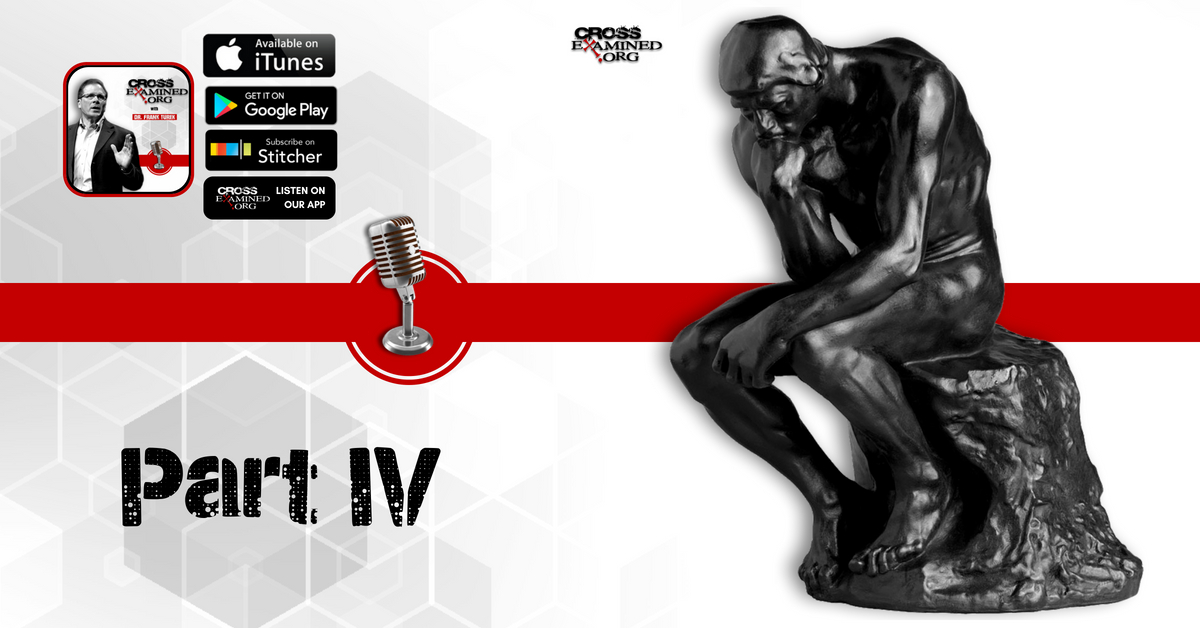Apologetics Is About Love
Apologetics is about love. Wait, what? Apologetics? About love? You mean to tell me that apologetics — making a defense for the Christian faith — isn’t about academic scruples that few people care about? Don’t apologists thrive off arguments and heated discussions? How could it be about love?
While I can’t speak for my fellow Christian apologists, love motivates me to study apologetics. Jesus tells us the greatest commandments are to love God and our neighbor as ourselves. I believe one way we can obey these commands is to grow in our understanding of apologetics. Make no mistake about it; apologetics can be intellectually fulfilling. Love, however, must be the primary motivation. The goal needs to be winning people’s hearts, not winning arguments. And it’s my love for the following people that compels me to do apologetics.
LOVE FOR NON-CHRISTIANS
Like everyone else, I have friends who aren’t Christians. Some of these friends belong to other faiths while others are atheists. I love these friends and want them to receive salvation. Yet they, like me, are deeply entrenched in their worldviews. Quoting Bible verses to them often doesn’t persuade them because they don’t believe the Bible. They don’t care that Genesis says God created the world. For them, the Bible is a mixture of bad history and old wives’ tales.
I could respond to these friends in one of two ways. I could throw my arms up in the air and say what’s the use? They’re on their own. Or, I could try to learn about their worldview and do my best to show them why it doesn’t square with reality. Furthermore, I could also try to answer any objections they have to my worldview. I chose the latter.
Because I believe Jesus is the Son of God who died and rose again for our sins, I desperately want my non-Christian friends to trust in him. I want them to receive forgiveness of sins. I want them to have eternal life and experience true and lasting joy that only Jesus can give. And because I love these friends deeply, I’m committed to studying apologetics with the hopes that God might use it to draw them to himself.
LOVE FOR MY CHURCH
The reason I emphasize apologetics in my local church is because I love my fellow church members. We live our lives to the fullest when we pursue a dynamic relationship with Jesus. And in my experience, apologetics has bolstered my relationship with him.
Not only do I possess greater assurance for my faith — it’s reasonable to believe what I believe — I am also prepared to share my faith with more boldness. Trepidation doesn’t overwhelm me anymore. I’m prepared to answer most questions and objections people have about my faith. In a very real way, apologetics has increased my ability to fulfill the Great Commission (Mt 28:19-20).
Whether people realize it or not, apologetics is the evangelism of today and of the future. While we should never avoid sharing the simple Gospel message — that Jesus died and rose for our sins — we must be able to provide good reasons for believing that Gospel message to be true. After all, we live in a post-Christian, pluralistic, skeptical culture that distrusts any form of religion. They don’t take the Bible at face value. They think religion is a personal matter — your truth is good for you, but not for my kind of mentality.
Most Christians struggle navigating these kinds of conversations. As a result, they feel defeated because they didn’t know how to respond to the skeptic’s objections. Or even worse, they begin to lose their faith. For these reasons, I make it my aim to emphasize apologetics in my local church. This emphasis equips my church to more faithfully live out their life on mission for Jesus.
LOVE FOR OUR YOUTH
Multiple studies report that a majority of students leave the church when they head off to college. In fact, one Southern Baptist study reports that 88% of children born in evangelical homes leave the church at age eighteen.1 According to most of these studies, the main reason students leave the faith is because of intellectual doubt.
It’s no secret that professors at secular universities are more disposed toward atheism and skepticism than the general public.2 In fact, many of these same faculty have a general dislike for evangelical Christianity. How then do we prepare our students in the youth group for the onslaught? With more games? By focusing more on inviting friends than personal discipleship? With short lessons on moral purity?
We throw our youth into the lion’s den with little more than a butter knife to defend themselves and wonder why they don’t make it out. We’re failing our youth if we don’t change our approach. Fortunately, excellent resources exist for equipping our youth in apologetics. Currently, our youth director is taking our students through The Case for Christ by Lee Strobel.
We have some great students in our church. I don’t want to see them become another statistic. I love them too much.
LOVE FOR JESUS
Jesus proclaims, “If you love me, keep my commands” (Jn. 14:15). I don’t know if most Christians recognize this, but God commands us to do apologetics. First Peter 3:15 asserts, “always be prepared to make a defense to anyone who asks you for a reason for the hope that is in you.”
Occasionally I’ll hear someone say Matthew 28:18-20 isn’t the “Great Suggestion,” it’s the “Great Commission.” In other words, Jesus was serious when he told his disciples to go spread the Gospel message. It’s not optional.
In the same sense, 1 Peter 3:15 doesn’t offer a suggestion, but a bona fide command to do apologetics. And doesn’t love for the Lord manifest itself in obedience? Christians aren’t simply hearers of the word, but doers also (Js. 1:22). I don’t always obey God’s commands as I should, but my love for Jesus compels me to do apologetics.
APOLOGETICS IS ABOUT LOVE
It’s not merely an academic exercise. It’s not about silencing your opponent. Apologetics is about persuasively sharing the Gospel to win people to Christ. It’s about fulfilling the greatest commandments to love God and our neighbor. In fact, Jesus tells us in the greatest commandment that we are to love God with all our “mind.” That is, loving God necessarily includes mental engagement. If you’re ever tempted to think that apologetics is unloving, I hope you’ll be reminded of Jesus’ words and think again.
Ryan Leasure holds a Master of Arts from Furman University and a Masters of Divinity from the Southern Baptist Theological Seminary. He currently serves as a pastor at Grace Bible Church in Moore, SC.
Original Blog Source: http://bit.ly/2N8bbUr












Leave a Reply
Want to join the discussion?Feel free to contribute!